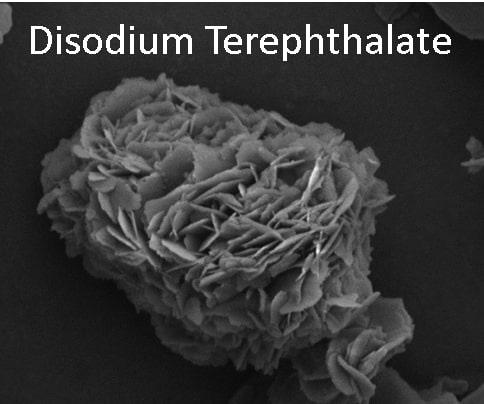
Credit: Vilas Pol/Purdue University
WEST LAFAYETTE, Ind. – New battery technology involving microwaves may provide an avenue for renewable energy conversion and storage.
Purdue University researchers created a technique to turn waste polyethylene terephthalate, one of the most recyclable polymers, into components of batteries.
“We use an ultrafast microwave irradiation process to turn PET, or polyethylene terephthalate, flakes into disodium terephthalate, and use that as battery anode material,” said Vilas Pol, a Purdue associate professor of chemical engineering who has worked with the Purdue Research Foundation Office of Technology Commercialization to develop several battery technologies. “We are helping to address the growth in the proliferation of renewable energy conversion and storage, which stems from the societal attention and increasing awareness of climate change and energy resource limitation.”
The Purdue team tried the approach with both lithium-ion and sodium-ion battery cells. They worked with researchers from the Indian Institute of Technology and Tufts University. The battery technology is presented in the journal ACS Sustainable Chemistry & Engineering.
Pol said that while lithium-ion technology is currently dominating both the portable electronics and electric vehicles market, sodium-ion battery research also has gained significant attention due to its low cost and appealing electrochemical performance in grid applications.
“The applicability of the microwave technique on organic reactions has gained attention in recent times due to its advantage of the rapid reaction process,” Pol said. “We have accomplished the complete conversion of PET to disodium terephthalate within 120 seconds, in a typical household microwave setup.”
Pol said the materials used in the Purdue technology are low-cost, sustainable and recyclable.
###
For more information on licensing and other opportunities with Pol’s battery technologies, contact OTC at [email protected].
About Purdue Research Foundation Office of Technology Commercialization
The Purdue Research Foundation Office of Technology Commercialization operates one of the most comprehensive technology transfer programs among leading research universities in the U.S. Services provided by this office support the economic development initiatives of Purdue University and benefit the university’s academic activities through commercializing, licensing and protecting Purdue intellectual property. The office recently moved into the Convergence Center for Innovation and Collaboration in Discovery Park District, adjacent to the Purdue campus. The office is managed by the Purdue Research Foundation, which received the 2019 Innovation and Economic Prosperity Universities Award for Place from the Association of Public and Land-grant Universities. The Purdue Research Foundation is a private, nonprofit foundation created to advance the mission of Purdue University. Visit the Office of Technology Commercialization for more information.
Writer: Chris Adam, 765-588-3341, [email protected]
Source: Vilas Pol, [email protected]
Media Contact
Chris Adam
[email protected]
Related Journal Article
http://dx.




